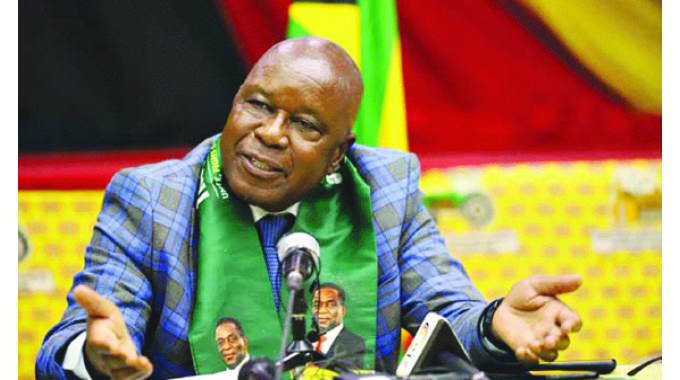Public services delivering — Survey

Zvamaida Murwira Senior Reporter
The rapid revamp of most Government services has seen most people now satisfied with what services they get, and have positive perceptions about transformation in the work culture in the public service, according to a survey carried out by the Ministry of Public Service, Labour and Social Welfare.
The survey found that the overall satisfaction index stands at 68,47 percent which falls within the internationally accepted range and exceeds the 50 percent target set in the National Development Strategy 1.
Acting Minister of Information, Publicity and Broadcasting Services Dr Jenfan Muswere said after yesterday’s Cabinet meeting that Cabinet considered and adopted the report on the Citizen Satisfaction Survey and the Baseline Survey on Work Culture Transformation, 2022, as presented by Public Service, Labour and Social Welfare Minister Professor Paul Mavima.
The survey was in line with the operational values of servant leadership and citizen-centric interventions set by President Mngangagwa and the Second Republic to ensure citizen engagement and inclusivity.
“Given that Government entities have the greatest interface with the people through the public services they provide, there is need to continuously and objectively assess citizens’ satisfaction with the services in order to ensure that expectations are effectively met.
“The survey is a major milestone in that it serves as a service-level benchmark for Government in spearheading people-centred service delivery,” said Minister Muswere.
“As such, the study gathered information on citizens’ and employees’ perceptions regarding Zimbabwe’s public service delivery system as well as the current work culture among public servants in accordance with set dimensions.
“Notably, the survey included gathering information on the behaviours, attitudes and knowledge of public service employees from the poor, vulnerable and marginalised groups such as women, the youth and persons living with disabilities,” the minister said.
The study found that the overall satisfaction index, the measure of the level of satisfaction, was 68.47. This was the average of the citizen rate of 67,78 percent and the staff rate of 69,17 percent.
“These indices fall within the internationally accepted range of ‘satisfied’, of 60 percent to 70 percent.
“This is also against the National Development Strategy 1 (NDS1) target of 50 percent for 2021, hence the conclusion that citizens and employees are generally satisfied with public service delivery,” said Minister Muswere.
The overall work culture transformation index was 69.09 percent, made up of scores ranging from 64,92 percent for wellness, inclusivity and gender to 78.42 percent for work ethics.
“These ratings were above 60 percent international threshold set by Government and the 50 percent NDS1 target for ‘satisfied’”, hence the levels are satisfactory.
“The study indicates that 66 percent of line ministries use the telephone, print and electronic media to communicate with citizens. Going forward, Government will continue to deepen and strengthen the use of social media platforms.”
Minister Muswere said the survey noted that citizens were satisfied that the Government will attend to deficiencies or gaps.
“The public will appreciate that the survey shows that the citizens are generally satisfied with the delivery of public services and have positive perceptions about work culture transformation in the Public Service.
“The survey resonates with the Second Republic’s mantra ‘what gets measured, gets done’, and citizens are assured that Government will attend to identified deficiencies,” he said.
The Second Republic has implemented several infrastructural projects that include dam construction, road rehabilitation among others, a development that has transformed several communities.
Some of them have created thousand of jobs directly and in downstream industries in several sectors of the economy that include, health, mining, agriculture, manufacturing, information, communication and technology among others.
To this must be added the implementation of making dealing with Government agencies so much easier, from business licencing and tax registration, through to very rapid processing of passport applications, without queuing.









Comments